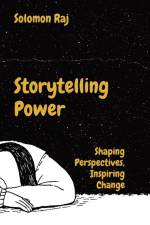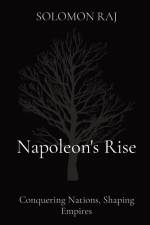av Solomon Raj
421
Narrating has an extraordinary power that stretches out past simple stories; it shapes points of view and fills in as an impetus for motivating change. At its center, narrating is a major human encounter, rising above societies, dialects, and ages. Whether passed on through antiquated oral practices, composed writing, or present day sight and sound stages, stories can shape discernments, touch off sympathy, and prepare people and social orders towards positive changes. The effect of narrating on forming points of view lies in its capacity to give assorted perspectives and stories. From the perspective of characters and plots, stories give a window into various lives, societies, and encounters. They challenge assumptions, expand understanding, and encourage compassion by permitting crowds to stroll in the shoes of others. This sympathetic association, produced through narrating, is a strong power in separating generalizations and encouraging a more comprehensive and empathetic perspective. Also, narrating has the unmatched ability to motivate change by taking advantage of the close to home center of people. Stories have the ability to bring out a scope of feelings, from bliss and giggling to distress and examination. These profound reactions are a demonstration of the narrator's art as well as act as an impetus for reflection and activity. A convincing story can possibly mix compassion and ignite the craving for positive change, inciting people to reexamine their points of view, mentalities, and ways of behaving. In different domains, from writing and film to reporting and promotion, narrating has been saddled as a device for social change. Stories that shed light on friendly treacheries, ecological issues, or basic freedoms infringement have the intensity to assemble general assessment and electrify aggregate activity. By winding around a charming story, narrators can cause to notice squeezing matters, motivating people to draw in with significant causes and add to positive cultural movements. In the present interconnected world, narrating has advanced through computerized stages, online entertainment, and virtual spaces, enhancing its span and effect. The democratization of narrating permits different voices to be heard, encouraging a worldwide trade of stories that test, move, and interface individuals across borders. From grassroots developments to worldwide drives, narrating keeps on being a powerful power for prompting change and cultivating a common feeling of humankind. Fundamentally, the force of narrating to shape points of view and rouse change is a demonstration of its persevering through significance in the human experience. As we keep on exploring the intricacies of our interconnected world, perceiving and outfitting the capability of narrating becomes a social and creative undertaking as well as a way to cultivate grasping, sympathy, and an aggregate obligation to positive change.





















